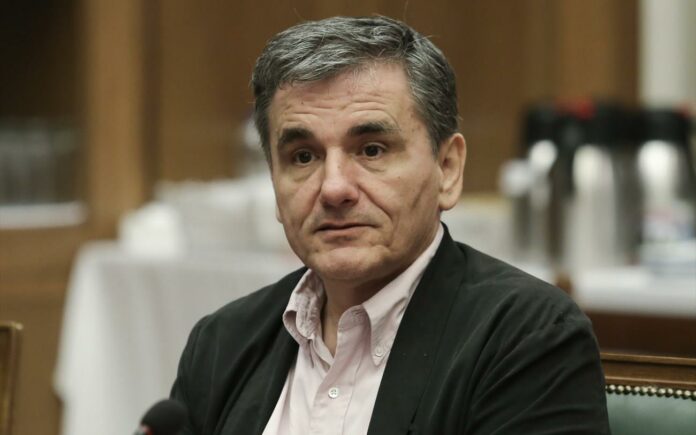Greek Finance Minister Euclid Tsakalotos reiterated, in an interview posted by Frankfurter Allgemeine Zeitung this week, that the leftist-rightist coalition government will not ask for a “precautionary credit line” in the post-bailout period.
Greece’s third consecutive memorandum program (bailout) ends on Aug. 20, 2018, meaning that the Greek state’s borrowing needs will now have to be derived from the markets.
Moreover, he again “deviated” from the political catchphrase being promoted by the poll-trailing Tsipras government regarding a “clean exit” from the bailout era, saying that a form of “supervision” will exist, similar to the other Eurozone member-states that requested and received a rescue package.
“In the case of Greece, supervision will possibly be more detailed,” he said, adding that once the country demonstrates its credibility, only fiscal goals will then be under scrutiny. As such, he pointed to the ambitious – and growth-stunting, according to the political opposition – annual primary budget surplus target of 3.5 percent of GDP until 2022.
In reference to tax rates in the recession-battered country, with the FAZ reporter asking whether “you are overburdening Greeks with taxes, and sacrificing growth in the process?” the previously UK-based academic, who returned to Greece to delve into radical leftist politics and to promote similar economic policies during the crisis years, answered:
“In order to achieve a primary budget surplus we burdened, excessively, a portion of society. Now, however, we are creating fiscal margins to reduce burdens to these strata of society. Generally speaking, tax rates (in Greece) are not excessively high … there are now greater margins for tax breaks.”














